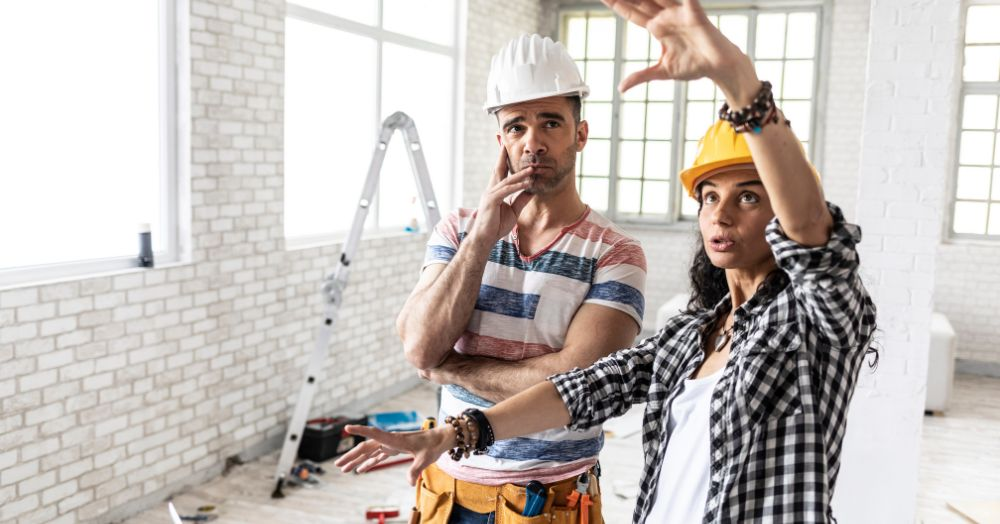When your home is no longer doing it for you, should you move or improve? Read this article to find out the pros and cons of improving your home, with top tips on how to get started.
We spend more time in our homes than anywhere else, so it is vital that you enjoy your space. But at some point, you might start to get itchy feet, begin to pick faults in your house and start to dream of somewhere new that gives you the lifestyle that your current home simply doesn't. Perhaps you want a little extra space or a kitchen that fills you with joy rather than dread.
Around this time, you might think the only way to get what you want from your home is to move to a new place that has everything your heart desires. Instead, improving your current home might be a valid option rather than selling it and moving somewhere new.
Consider the issues that you have around your current home. Of course, if you are looking to relocate, then there is nothing much you can do to change that without moving. But improvements can be made if you have fallen out of love with your house or need just a little extra space.
As with everything, both options have pros and cons when deciding whether to move house or make improvements.
Moving house might mean buying a home that fulfils your needs without the inevitable upheaval of having work done to your property while living there. However, it takes time to sell a property, and there are obvious costs involved in the sale and purchase of property.
You might not want to sell up and move for many reasons. Your home might feel like a wrench as it is likely filled with happy memories. The property might be in the perfect location for you and your family, and moving somewhere new might mean a lot of upheaval for the whole family, including changing schools or a longer commute to work.
If you are considering staying put and making the property work for you, there will also be costs involved that might include architects and obtaining planning permissions or employing contractors.
There is also the consideration of raising the funds to do the repairs, whether you have savings to pay for the improvements or hope to raise finance against the property. You will likely increase your home's overall value with any improvements you make, which may make it worth your while in the long run.
So, what should you do if you decide to stay in your home and improve it so that it fits you and your family perfectly?
Set a budget: A common pitfall of major construction and refurbishment of property is that they often go over budget. This can be due to unforeseen circumstances or the fact that you upgrade your choices of fixtures and fittings as the project progresses. Setting a budget and keeping a keen eye on spending throughout the process is essential so you don't overspend.
Understand the value of the property: An important factor when setting a budget and sticking to it is understanding the value of your property at the outset and then keeping the renovations under the potential value when the work is complete. Otherwise, you run the risk of overspending and overdeveloping the property, which you might not recoup in the value in the future.
Financing: How will you pay for the work? Will you use savings or raise finance? The amount you can raise might dictate the project's end result.
Plans: Will your project need planning permission? You may need to speak to an architect to develop a design and get planning permission for you. Even if your project does not require planning permission, it might still need building control sign-off to ensure the work is carried out properly. Failure to do this might cause you issues in the future if you decide to sell.
Contractors: Look for reputable contractors and get a quote from the outset so you are not surprised by any invoices.
If, however, you decide that a move is on the cards, get in touch with our property experts for guidance on how to get the ball rolling and get you moved.

